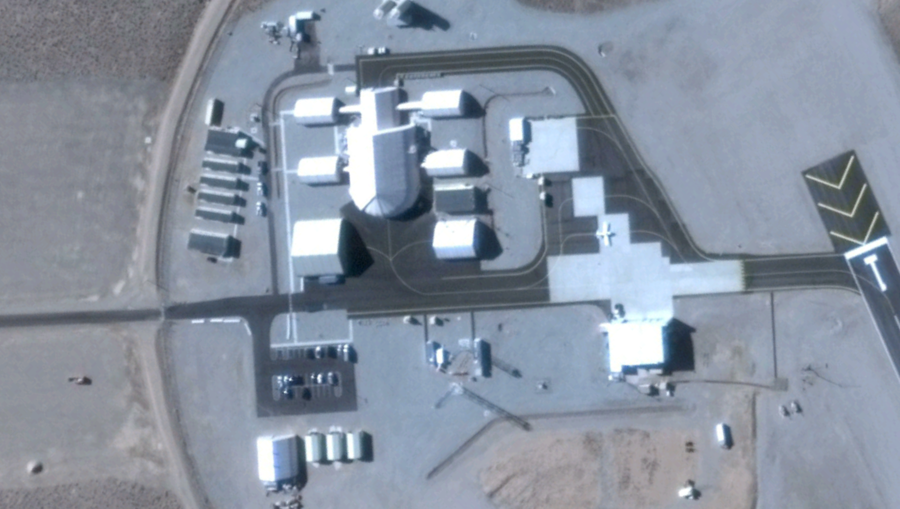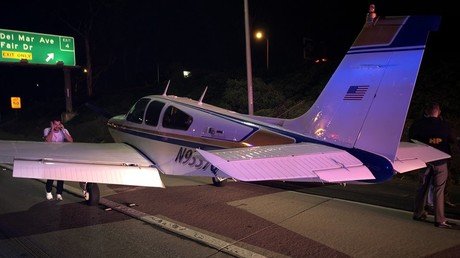Not so top secret: 4 times US military sites were exposed online
Fitness tracking apps have inadvertently revealed the locations of secret US military sites in the world’s most remote locations. However, it isn’t the first time technological blunders have given away valuable American secrets.
In light of the embarrassing setback for US clandestine operations, RT.com looks back at some of the most unfortunate security breaches in recent times.
READ MORE: US military bases & patrol routes compromised by fitness tracker map
Saudi Arabia
In 2013, satellite images available on Bing Maps revealed a remote airstrip in the Saudi Arabian desert. Based on the design of the outbuildings, some reports suggested that it was a secret US drone base. The existence of such a facility was first reported in the New York Times earlier that year.
‘Fighting season’: Pentagon to send ‘1,000 new troops & drones’ to #Afghanistanhttps://t.co/rkz3QMITDLpic.twitter.com/k0WygozS8A
— RT (@RT_com) January 12, 2018
DigitalGlobe, the commercial imaging company, pictured that section of the Rub al Khali desert in 2010 and then again in 2012. The first image showed no sign of the airfield while the second showed clear signs of construction. This tallies with the timeline set out in the New York Times.
Described to Wired as a “major logistical feat” by a former intelligence officer, the base was reportedly the launch site for the controversial mission to assassinate Anwar al-Awlaki, a US citizen and radical cleric, in Yemen in September 2011.
Jordan
In July last year, the website War is Boring reported that a previously-unknown US drone base had been spotted by satellites over northern Jordan. At the time it was the second base pictured along the Syrian border after another site was uncovered in southern Jordan.
US is developing one of its biggest military base in Southern Syria +airstrip surrounded by various smaller outposts https://t.co/LzUOXNGK9Spic.twitter.com/Z8qyGRzIcd
— Already Happened (@M3t4_tr0n) July 8, 2017
The website Already Happened, which describes itself as an independent media organization, published before and after satellite images of the sites to its Twitter account. The base in northern Jordan is thought to house Reaper drones used to launch strikes across Syria and Iraq. The base, known as the ‘Jordanian H4’ was first pictured in 2014, but pictures show further structures were added in 2015 and again in 2016.
According to https://t.co/f5uptTh1NT F-35A stealth fighter jet minimum taking off and landing distance ~200m https://t.co/LzUOXNGK9Spic.twitter.com/4DM4zyorwU
— Already Happened (@M3t4_tr0n) July 8, 2017
Nevada Desert
Everyone is aware of the conspiracy theories around the US government’s super-secret Area 51 facility in the Nevada desert. However, even less is known about a base found just 12 miles away, Area 6. Well, that was until it appeared on images of the site Google Earth.
READ MORE: Breathtaking scale of Moscow radar station revealed in drone footage (VIDEO)
Consisting of a single runway and one large hangar, Area 6 is used by government agencies to test the sensors of its unmanned aircraft. It was even so low profile that many defense industry experts were not even aware it existed. “I had not heard about it,” John Pike, director of GlobalSecurity.org, told the Las Vegas Review-Journal.

A spokesman for the National Nuclear Security Administration – the body that runs the secret site – told the Review-Journal that the controlled airspace gives them opportunities to run experiments on “various types of platforms.” Experts believe the climate in Nevada mirrors perfectly the conditions encountered by drones in the deserts of Libya, Syria and Iraq.
Nuclear newsletters
In 2009, the US government mistakenly published the locations of stockpiles of fuel for nuclear weapons, along with information about the nation’s nuclear sites and programs, in a federal secrecy newsletter.
The president of the Institute for Science and International Security, David Albright hit out at officials who were trying to downplay the incident and warned that the information could “provide thieves or terrorists inside information that can help them seize the material, which is why that kind of data is not given out.”
If you like this story, share it with a friend!















